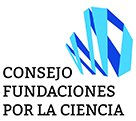G protein‐coupled receptor signaling complexes: functional and pharmacological perspectives
G protein-coupled receptors (GPCRs) constitute a large superfamily of proteins that respond to a variety of extracellular stimuli ranging from photons and small molecules to peptides and proteins, such as hormones, neurotransmitters and paracrine agents which activate transduction pathways of signals and, finally, give rise to specific cellular responses. In humans there are more than…
2020





